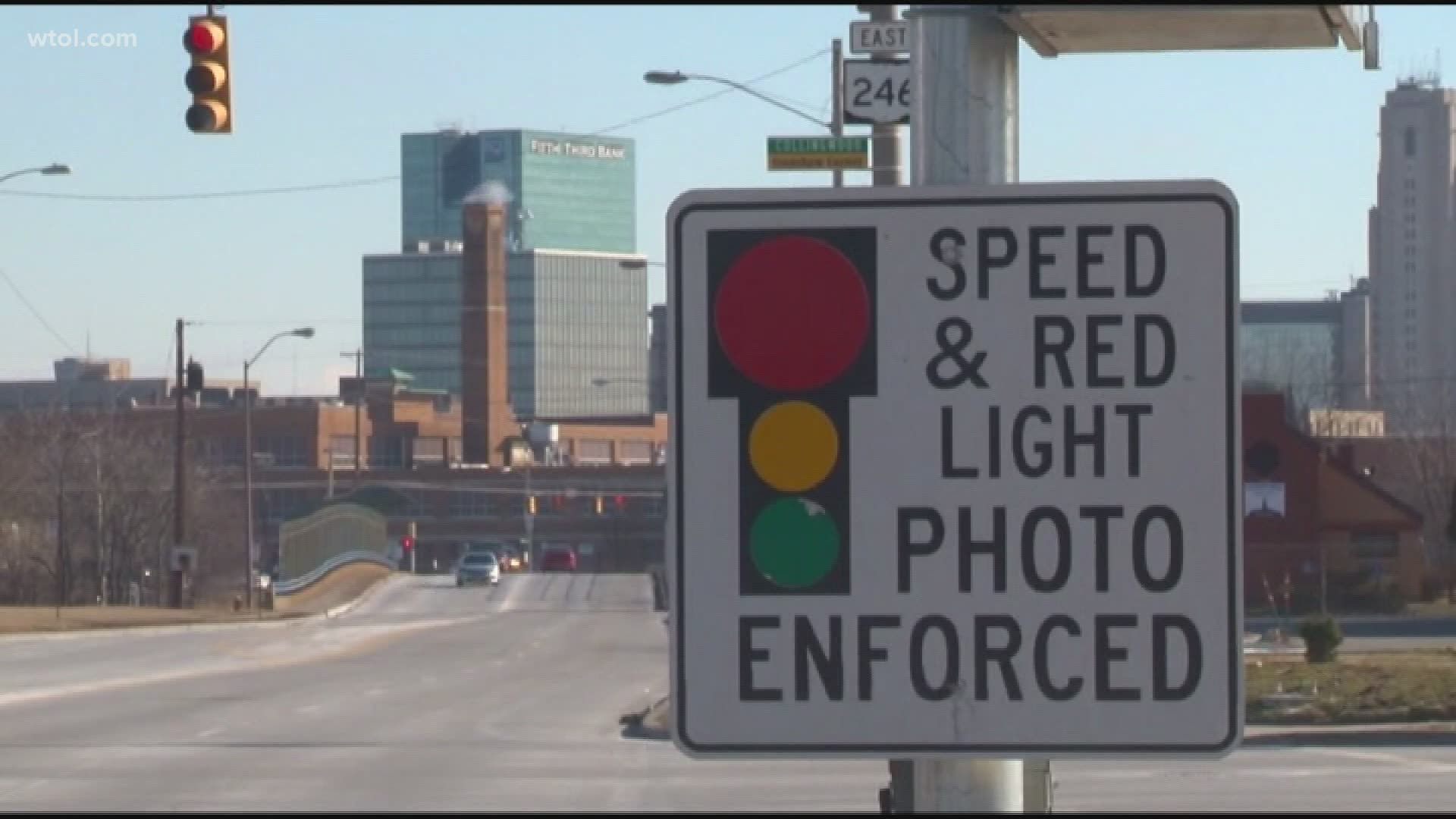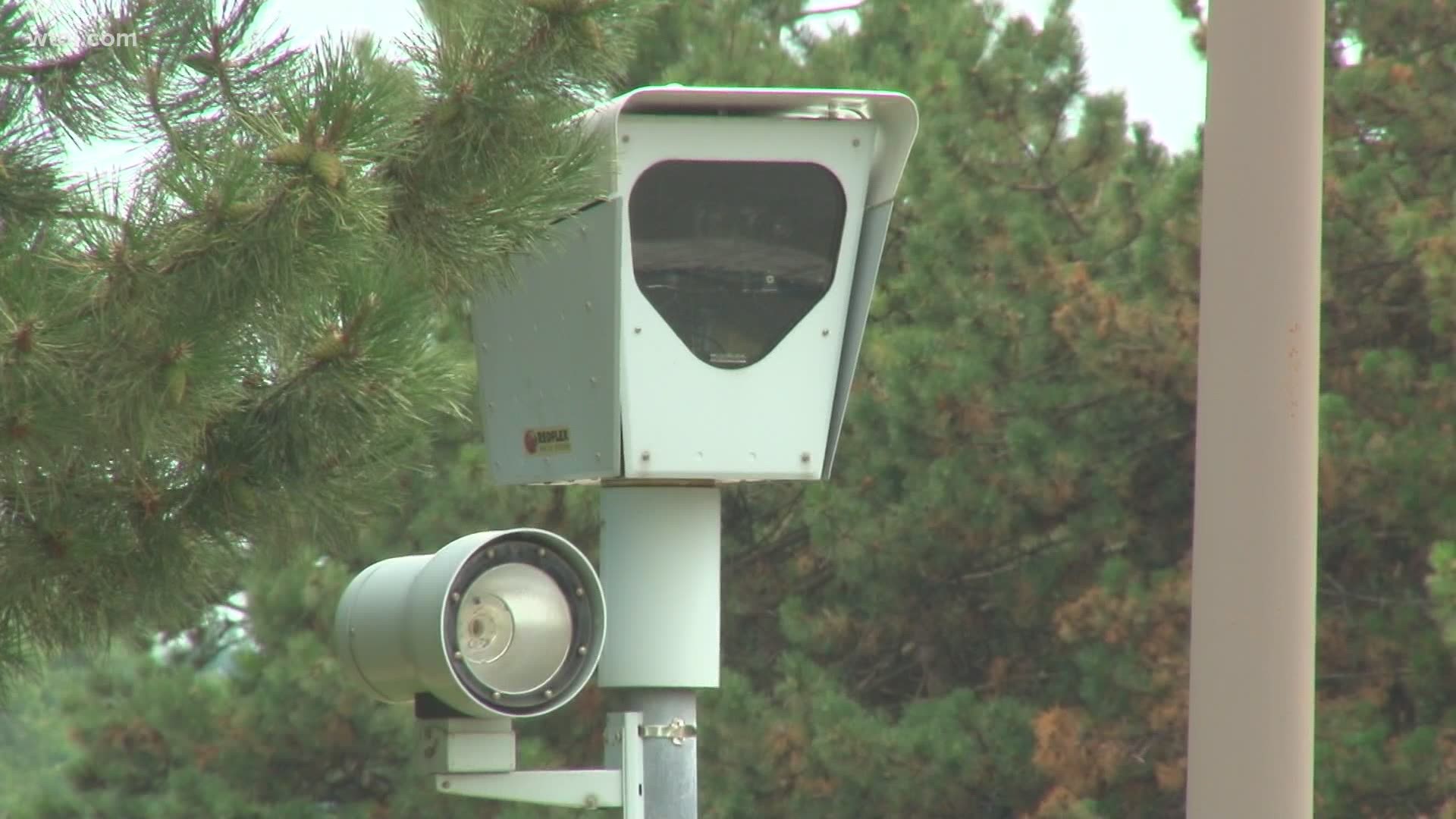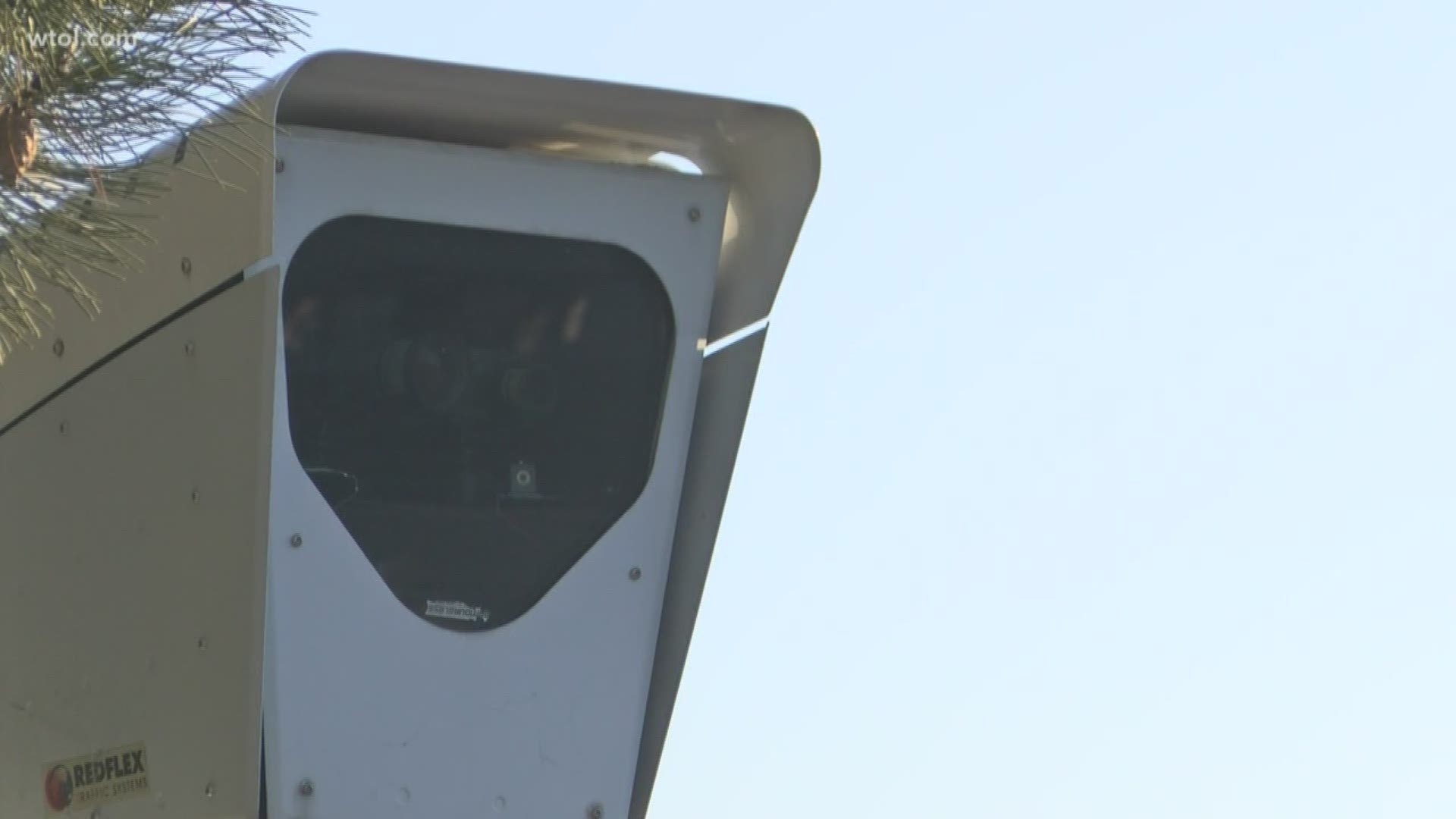TOLEDO, Ohio — UPDATE: On Friday, June 26, Ignazio Messina, Director of Communications with the City of Toledo, confirmed that the red-light camera program, including handheld cameras, are suspended until further notice.
The city law director is working to switch the appeals process over to the municipal court. All appeals currently in the system or filed after Wednesday will be dismissed.
The Ohio Supreme Court struck down a key part of Toledo’s red-light camera program Wednesday.
The 7-0 decision ruled that the city’s administrative hearings, which used a city-appointed officer to listen and decide on appeals to red-light camera violations, is unlawful.
Instead, it states that a revised 2019 law "vests exclusive jurisdiction over noncriminal traffic-law adjudications in the municipal courts. Toledo, therefore, has no jurisdiction to conduct its own quasi-judicial proceedings."
Susan Magsig of Woodville, Ohio, filed her case against the city late last year.
Last August, Magsig received a $120 fine in the mail for an alleged speeding violation from an automated speed camera near Toledo ProMedica hospital. She had a choice of either paying it or appealing it using a process she argued was unlawful.
Back in 2014, the Supreme Court ruled in Walker v. Toledo that the city’s use of these administrative hearings is constitutional and they have jurisdiction. But Ron Mayle, one of Magsig's attorney said the addition of one word to the new law that went into effect July 3, 2019, as part of the state transportation budget changes that jurisdiction to municipal courts.
"At that time the Supreme Court said no, "any" doesn't mean exclusive," he said. "I didn't agree with it but that's their decision. The legislature didn't like that so they passed that law that made it clear it needs the word "exclusive."
But even after the change in law, the city of Toledo continued to operate with those hearings.
"We're familiar with people that went in and there are no rules of evidence, there's no proof required on the city, they win unless you show they lose," Mayle said.
The program is still legal and running because the administration believes it helps make streets safer. But Mayle said without an officer present, it doesn't deter speeding.
"How's that save anyone's life. Nothing happens when it's happening. This has always been about another form of taxation," he said.
The decision will have an effect on other cities' red-light programs if they used the same type of hearings.
The city responded to our request for comment on the decision with the following from city law director Dale Emch:
"The city will discontinue its administrative hearing process for traffic camera violations in light of the Supreme Court’s ruling. The Court ruled that these tickets need to be handled in the Municipal Court following the change in state law last year. This does not prevent the city from operating a traffic camera program, and we will continue to litigate the state’s infringement on our Home Rule authority. The automated traffic enforcement cameras help make our streets safer for all drivers. We continue to believe that they help slow down speeders and reduce the number of people who run red lights. Lives can literally be saved."
Emch also stated that the city administration is currently working with the municipal courts and all parties involved to make the transition. But if you receive a violation in the meantime, there is no clear answer on what to do if you would like to challenge it.
Emch added the administration may consider suspending the program until the switch is complete. But the cameras are still operating across the city.
RELATED VIDEO:



